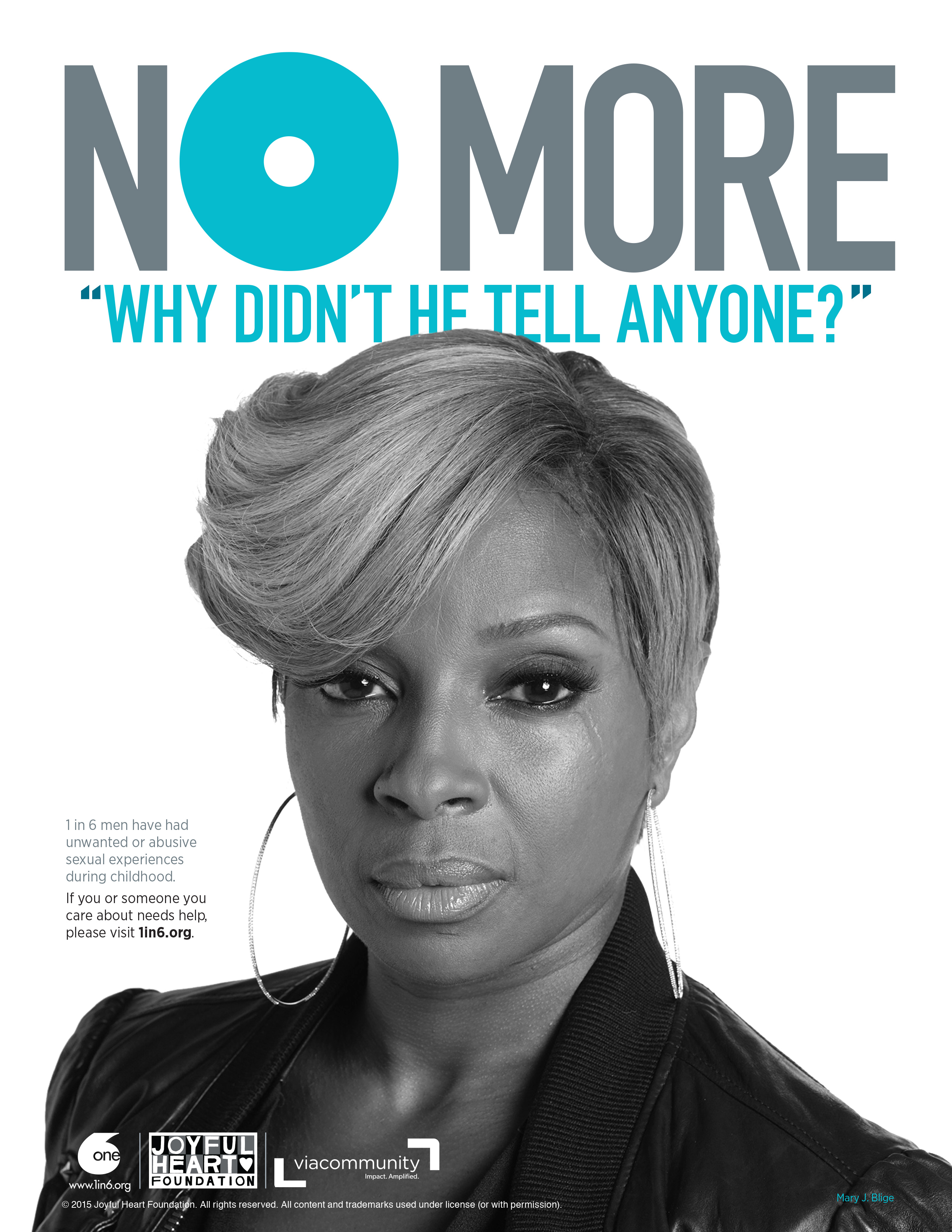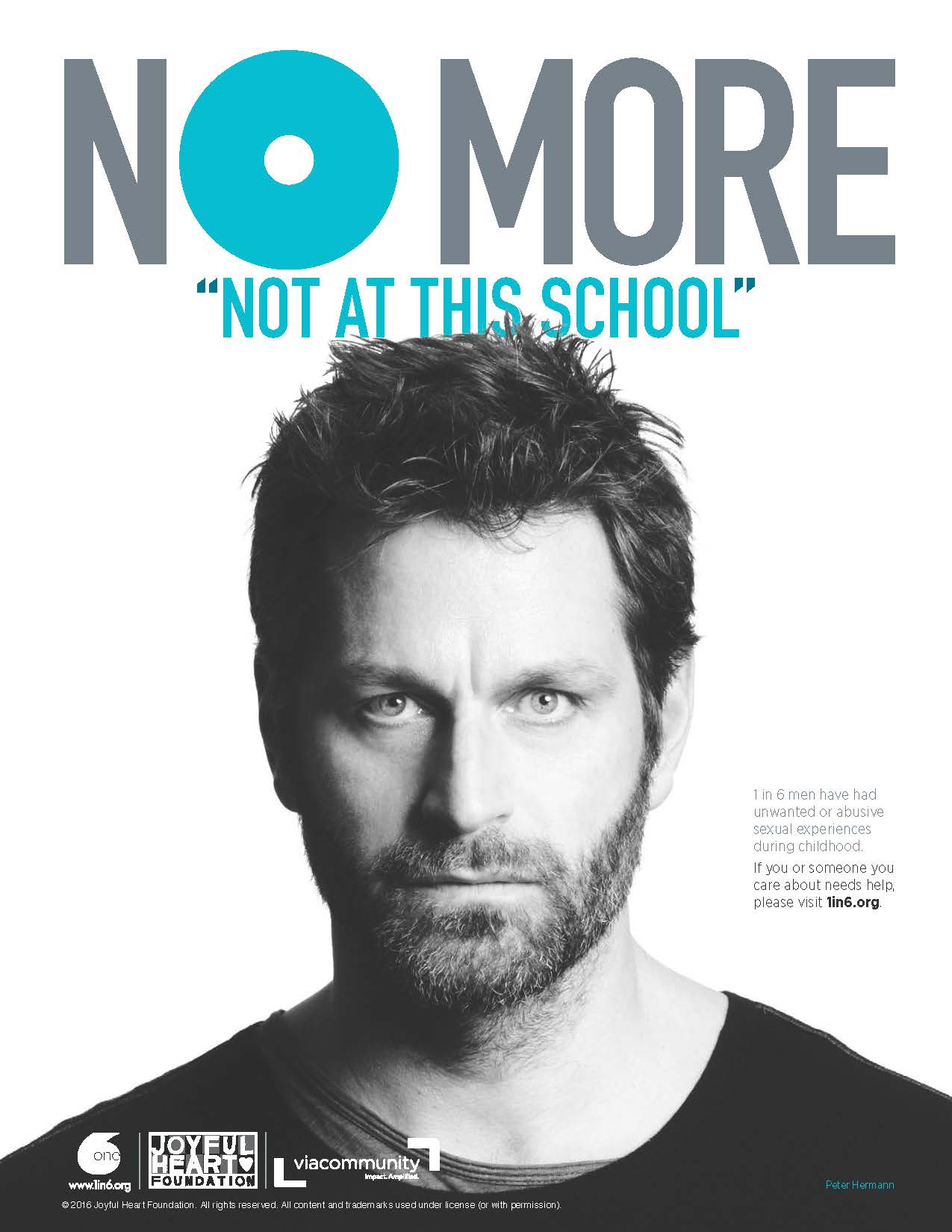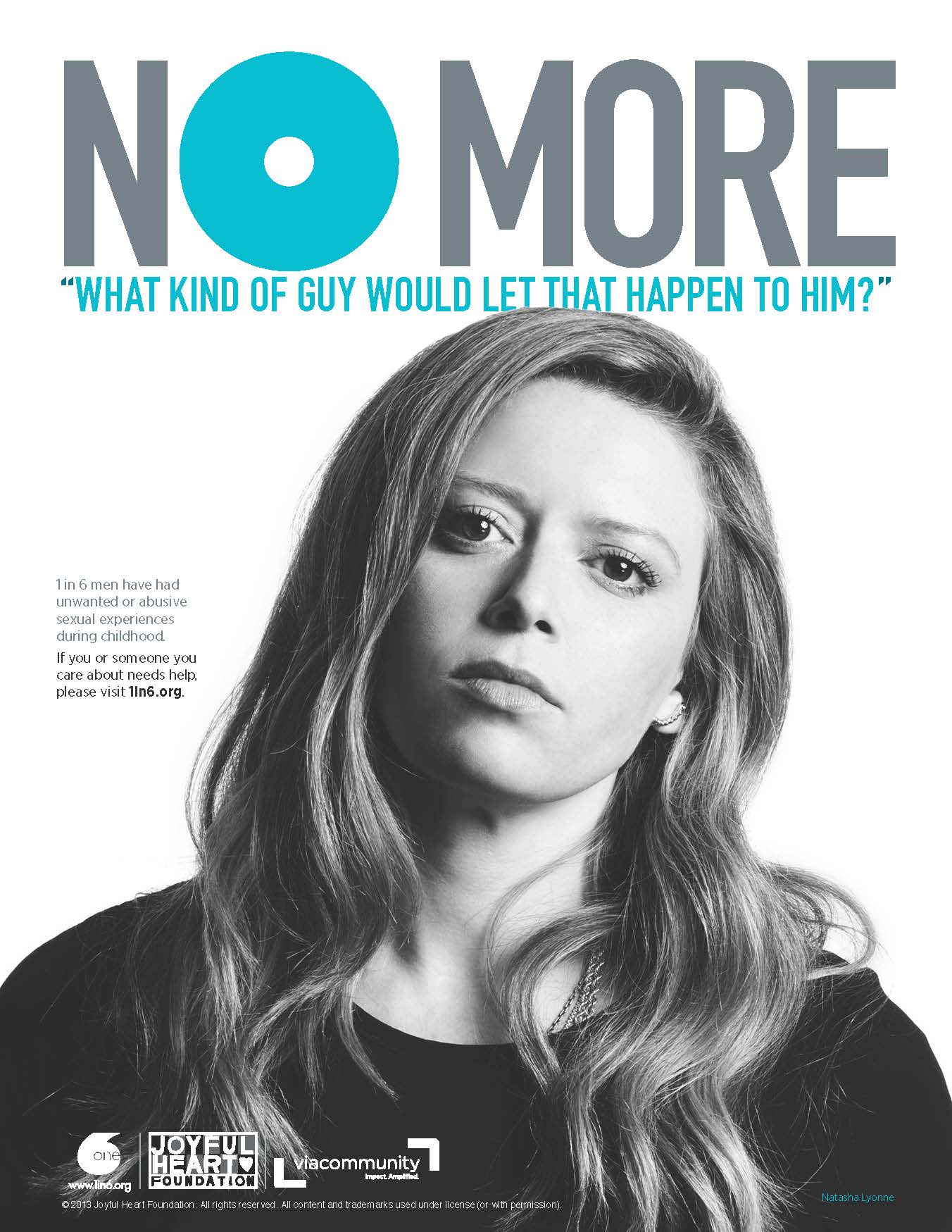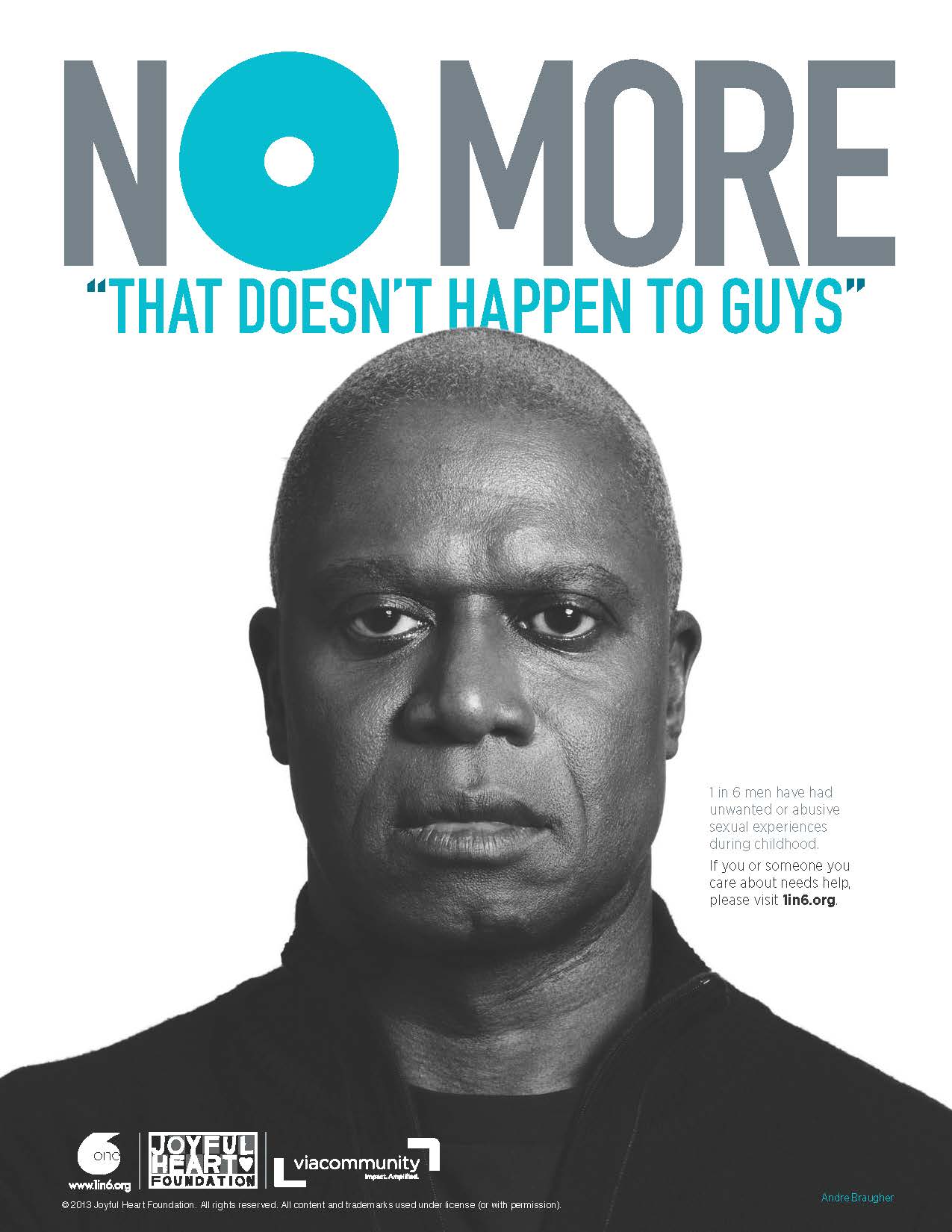You can leave this site quickly.
Learn more about Internet safety.
It’s Not “Just A Women’s Issue.” Men Are Survivors Too.
Joyful Heart and 1in6 are proud to share a new series in Joyful Heart’s groundbreaking, celebrity-driven NO MORE PSA campaign to address the myths and excuses surrounding males who have experienced childhood sexual abuse, and to invite male survivors to seek help at 1in6.org. The PSAs were created in partnership with Viacom, directed by Joyful Heart’s Founder & President, actress and advocate Mariska Hargitay, developed in partnership with Y&R, Executive Creative Director/Writer, Rachel Howald, and photographed by world-renowned celebrity photographer Timothy White. They debut across Viacom’s networks this week.
When Joyful Heart’s NO MORE PSA campaign began rolling out across the country three years ago, it highlighted the myths that create misplaced blame on survivors and the excuses that allow people who have behaved abusively to evade accountability for their crimes in a new and powerful way. We heard from a community of men who both applauded our efforts, and also asked us to consider the unique attitudes and beliefs surrounding their own experiences and our cultural norms around masculinity that operate to keep male survivors silent. The original ads didn’t convey the messages that boys and men hear telling them they should never be—or even appear—weak or vulnerable. So we listened and we learned. And the ads you see today are the result of a thoughtful collaboration between our two organizations and male survivors, all started by feedback from our community.
And, although this campaign was created specifically with the 1 in 6 male survivors of unwanted or abusive sexual experiences of childhood in mind, we know that men experience sexual and domestic violence in all its forms. Those men—like the 21 million men who are survivors of childhood sexual abuse—are from every race, ethnic group, social class and region of the country. They are our fathers and our sons, our brothers and our life partners; our friends and our colleagues. And the reason you may have never heard one of their stories is because our culture seeks their silence and demands their strength. It turns away from their experiences, their emotions and their vulnerability. This campaign is designed to alter these cultural norms.
We’ve all heard the dismissive refrains—things like “that doesn’t happen to guys,” “what kind of guy would let that happen to him,” or “he seems just fine to me.”
The beliefs—that boys and men can’t be sexually used or abused—are woven deeply into our collective consciousness. The myth that males don’t experience sexual or domestic violence is central to cultural ideals of masculinity that focus on physical strength and sexual desire. Maybe you can even recall thinking or saying something similar yourself. Many men who’ve experienced abuse have too: internalizing those harmful misunderstandings themselves, imagining they must be the only one.
Sadly, many men who have experienced abuse and assault choose to remain silent. Why? Because they fear that others will not see them as “manly,” may question their sexual orientation, or insist that they must have wanted it. These are all responses we have learned that shame males for any sign of weakness, vulnerability or fear.
This new Joyful Heart No MORE PSA campaign is specifically geared toward starting conversations that engage rather than belittle those men. We need to change that narrative so men and boys, as well as women and girls, can feel safe stepping forward to get help.
Survivors of all genders are by and large encouraged to bury our experiences—whether that’s because we may be met with a criminal justice system that doesn’t adequately respond, or a community that doesn’t believe. For men in particular, the response may be one of questioning their manhood or sexual orientation, or insisting that they must have wanted the sexual interaction.
There’s much at stake. Postponement of the recovery process can result in a life not fully lived; men who do not have support and help for dealing with what was done to them are at a significantly higher risk for a host of health issues (substance abuse, self-destructive behavior, chronic health conditions), mental health issues (depression, suicidal ideation, post-traumatic stress disorder) and social dysfunction (failed relationships, impeding of education and career objectives, interpersonal violence).
If we are to become a society that talks openly about these issues, if we are to be a society that prioritizes healing, that makes it safe for a man to say "I was sexually abused as a child," that celebrates a man's decision to speak out without the conveying that he is somehow weak, or damaged, or that he owes some kind of explanation for how such a thing could happen to him, we must say NO MORE to the prevailing attitudes that have cemented these issues in place for so long and made them so difficult to change.
All survivors—men and women, boys and girls—have suffered silently long enough. It's time we spoke openly, intelligently and compassionately about the men who have suffered the trauma of sexual assault, abuse and domestic violence.
Each of us can begin the conversation with a man we know—whether he’s a man who’s experienced abuse himself or just a man in a position to help change the narrative.
If you or someone you care about needs help, please visit:
- 1in6.org. 1in6 a leading organization providing support and information to male survivors of childhood sexual abuse.
- National Domestic Violence Hotline: 800-799-SAFE (800-799-7233)
Explore the full series of PSAs on Joyful Heart’s website. The NO MORE PSAs—already seen by an audience of more than 4 billion with $90 million worth of donated airtime—have played a large role in starting important conversations and changing the way society thinks about and responds to this violence.
And join us by sharing the campaign and facts on social media. It takes a few clicks and just a moment to share the powerful and important message for the 21 million men who have had an unwanted or abusive sexual experience: you are not alone.








Your Voices